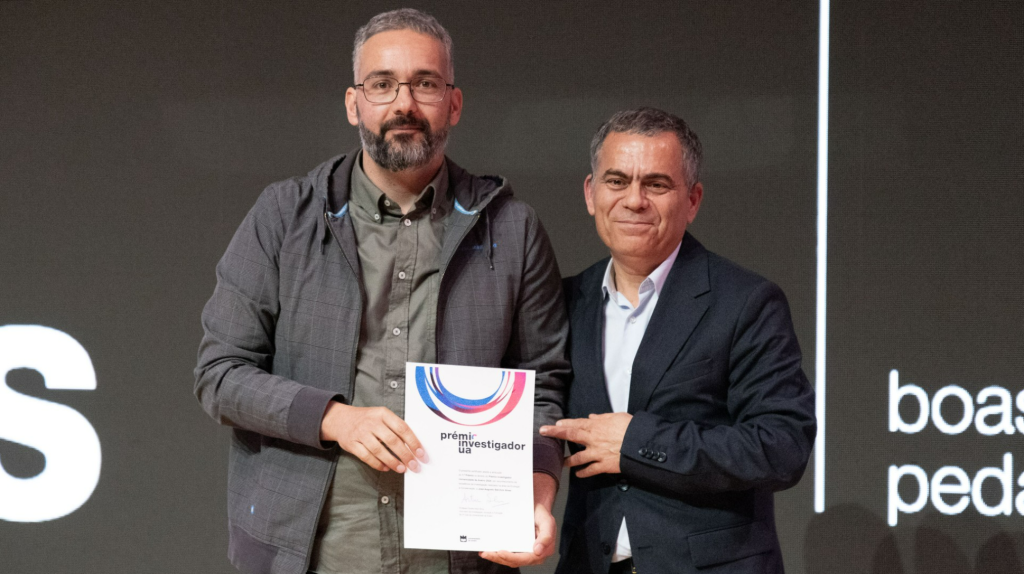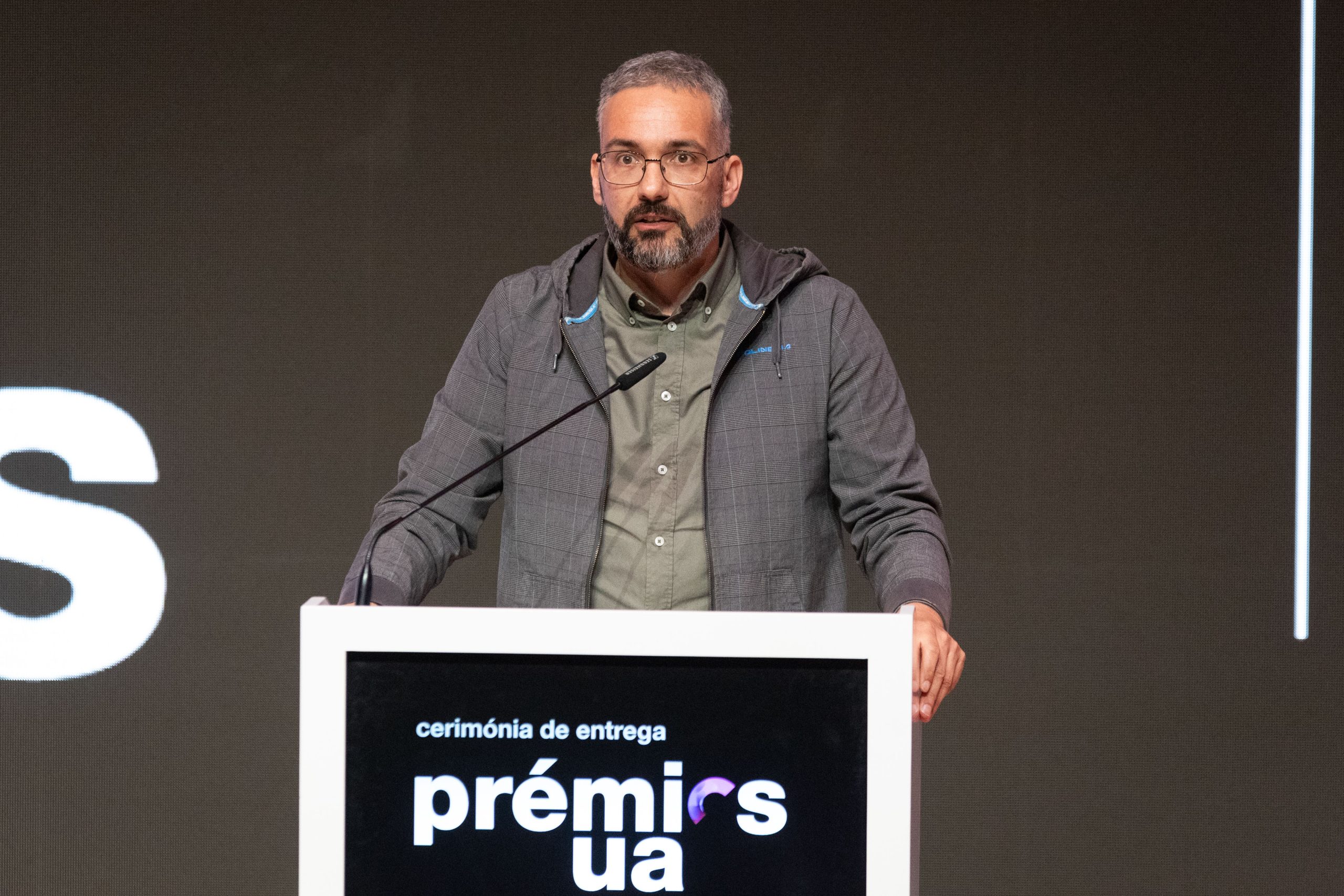On April 16, the University of Aveiro (UA) hosted the 4th edition of the UA Awards Ceremony, an annual event that celebrates academic excellence across various areas of university life. Among this year’s honorees, the Researcher Award was granted to José Alves from CESAM/DBIO in recognition of his outstanding contributions to the fields of ecology and biodiversity conservation.
For José Alves, the award represents more than personal recognition. “This award is only possible thanks to the support structures for research that exist at UA and, in my specific case, at CESAM,” the researcher emphasized. According to him, the distinction is above all a reflection of the collective work carried out within the institution, where the daily support of colleagues and collaborators is essential for producing high-quality science.
José Alves also highlighted the symbolic importance of the award: “This recognition places ecology and biodiversity conservation at the forefront,” noting that this is a scientific field where innovation and knowledge transfer to society occur even without patents or high technology readiness products. “It is a sign that fundamental science also deserves prominence, especially in a time when it faces serious threats,” he added.
José Alves’ research focuses on migratory birds and their complex life cycles, which span Arctic, temperate, and tropical biomes. His work, carried out in collaboration with a wide network of researchers along the East Atlantic Flyway — and more recently, in other regions — has helped advance our understanding of the ecological challenges faced by these species, while underscoring the need to protect the natural ecosystems upon which humanity depends.
“This award largely reflects the work and contribution of many collaborators,” José Alves stated, referring to master’s and PhD students, research group members, and international partners involved in his transcontinental projects.
The recognition of José Alves with the Researcher Award reaffirms CESAM’s role as a leading research unit in scientific production and its commitment to environmental sustainability. By honoring those who investigate global phenomena with local impact, the University helps ensure that the knowledge generated extends beyond academia and serves the broader society.

